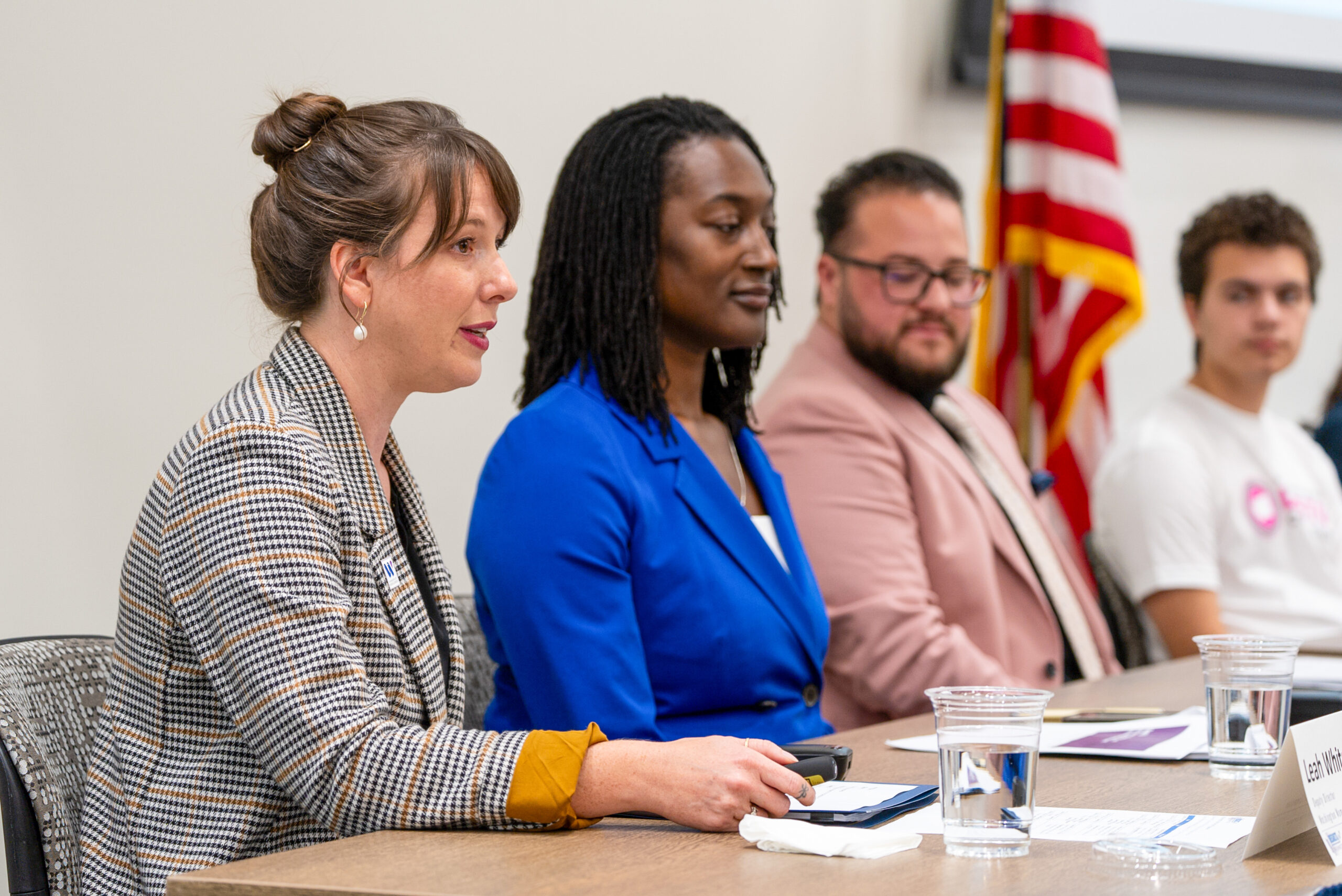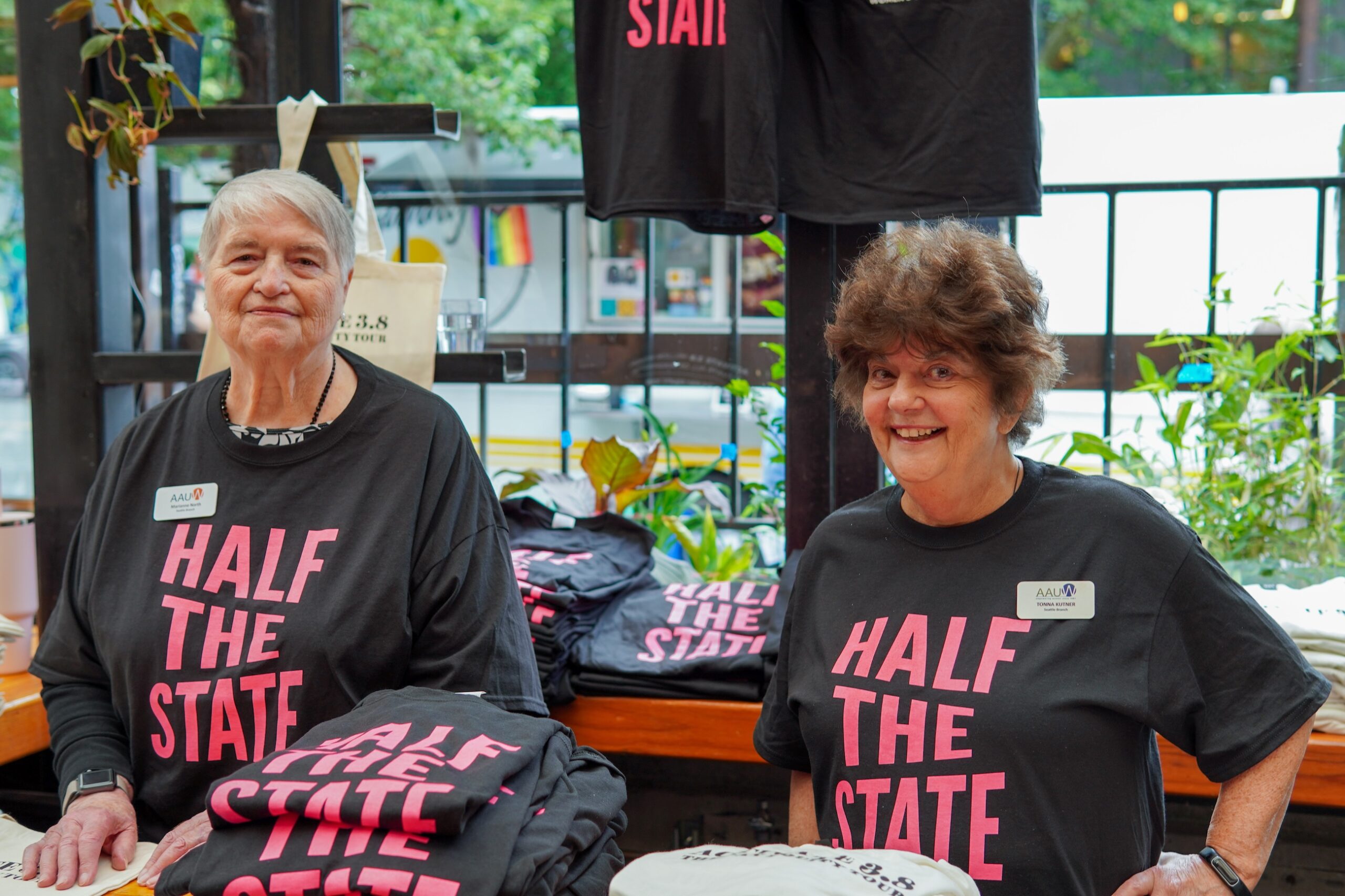The Pandemic’s Toll on Latinas in Washington
April 27, 2022
Thank you to all who joined our April 21st event, “The Pandemic’s Toll on Latinas: A Conversation with Latina Leaders in Washington State.”
We especially want to thank the Washington State Commission on Hispanic Affairs for co-hosting the event, as well as our panelists, Antoinette Angulo, Policy Director at the Latino Center for Health; Mary Jo Ybarra-Vega, Outreach & Behavioral Health Coordinator at the Quincy Community Health Center; and Dr. Miriana Duran, MD, MPH, Research Coordinator at the Department of Health Systems and Population Health at the University of Washington School of Public Health as well as Data Analyst at the Latino Center for Health.
Our discussion centered around a study conducted by the Latino Center for Health and Sea Mar Community Health Centers which showed that the Covid-19 pandemic has disproportionately impacted Latinas in Washington State. Latinas’ intersectionality of gender, race, ethnicity, country of origin, and immigration status have contributed to high job loss, financial instability, and severe mental and physical health repercussions.
Dr. Duran pointed out that a shocking 60% of Latino men and women reported a reduced income since the beginning of the pandemic, but a much greater percentage of women were unemployed or underemployed. Two major factors in this phenomenon have been Latinas’ overrepresentation in low-wage and front-line work, as well as new childcare responsibilities placed more heavily on women than men.
The pandemic pushed an already vulnerable population to no longer be able to meet their basic needs. The study found that 53% of participants worried about running out of food several days a week, and 47% worried about not being able to pay rent several days a week. Many families suddenly had half the income, but their children couldn’t access free and reduced lunch when school was not in person. As a result, families had to provide more food and use more electricity and water. In addition, there has been a particularly harsh impact on undocumented Latinas, who were excluded from receiving federal economic relief benefits even when married to U.S. citizens.
Ybarra-Vega stressed that Latinas are champions that have weathered hard times before. In her work at the Quincy Community Health Center, she has seen how they try to be strong for their families, but she’s worried about how the children are doing. Schools don’t have the mental health support they deserve, and kids are suffering because parents are suffering. Angulo added that mothers work to set the tone in their home to make sure their kids feel safe, which has taken its toll on their mental health during such a stressful time.
Angulo stated, “I want to underscore why it is important that we’re talking about Latinas and the economic impact of the pandemic. We’re all interconnected. Like it or not, we are all interconnected. That Latina farmworker is a critical part of our basic food system, and so when she’s not well, we’re not getting our food. We’re already experiencing supply shortages and rising food prices. And so, when she has her basic needs met, when she is successful, Washington will be successful. Our country will be more successful.”
The Washington State Women’s Commission recognizes the disproportionately negative impact the Covid-19 pandemic has had on Latinas in our state and is committed to helping improve their well-being by identifying and developing policies to remove systemic barriers and address critical issues that disproportionately impact them.
Rewatch the panel
For those who missed it, watch the recording of the event here:
Resources:
- The Latino Center for Health
- “Economic Impact of the Covid-19 Pandemic on Latinos in WA State and its Toll on Women”
- “Depression and Anxiety among Latinos: Urgent Call for Mental Health Services”
- “Latino Views on COVID-19 Vaccinations: Understanding Hesitancy”
- “Vaccination Rates Among Washington State Latinos Remain Low as Delta Variant Emerges in the U.S.”
- “Examining Trusted Sources of COVID-19 Information Among Latinos”
- Vaccination Rates Among Washington State’s Latinos1 are Improving, but Challenges Remain



